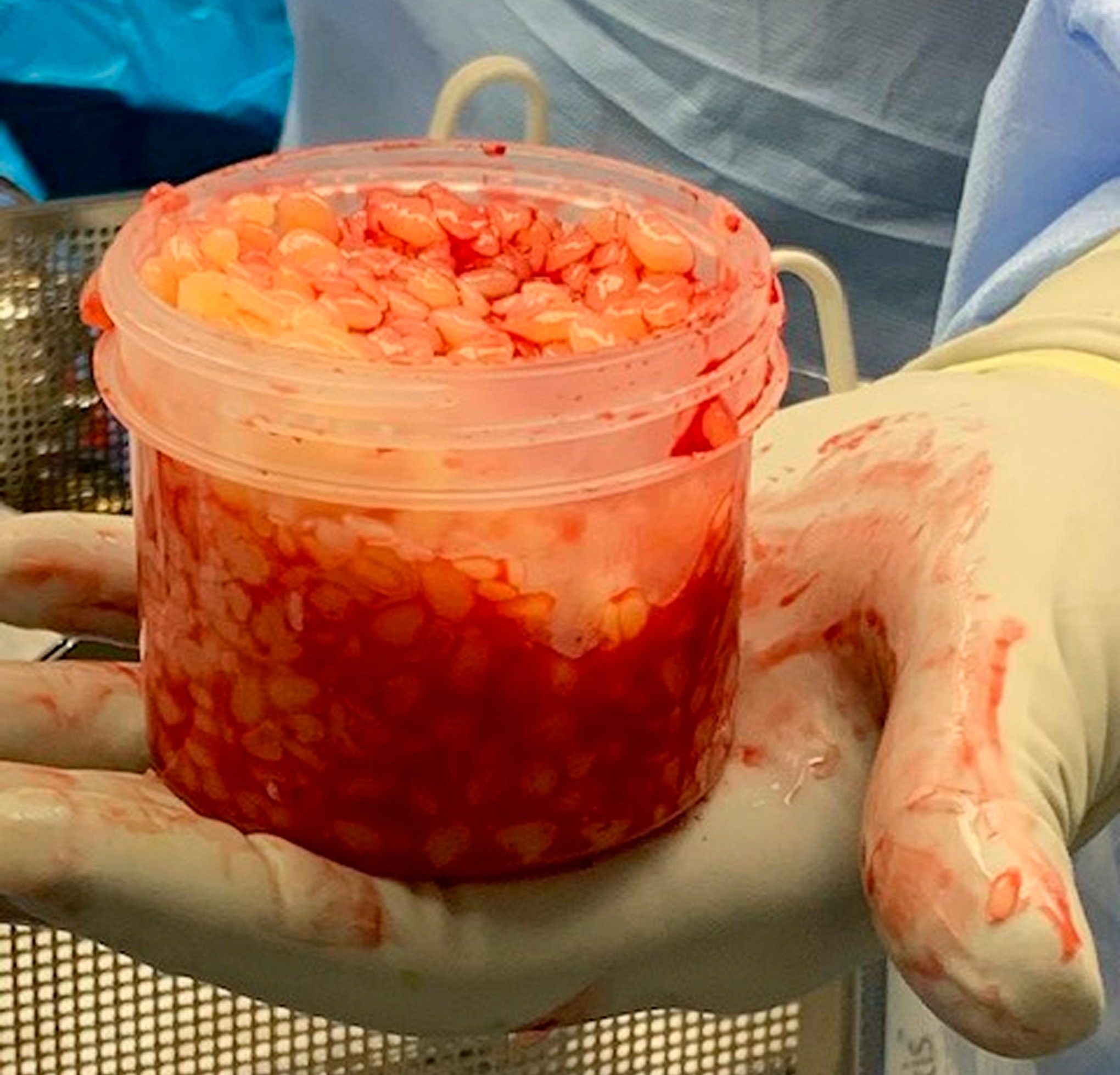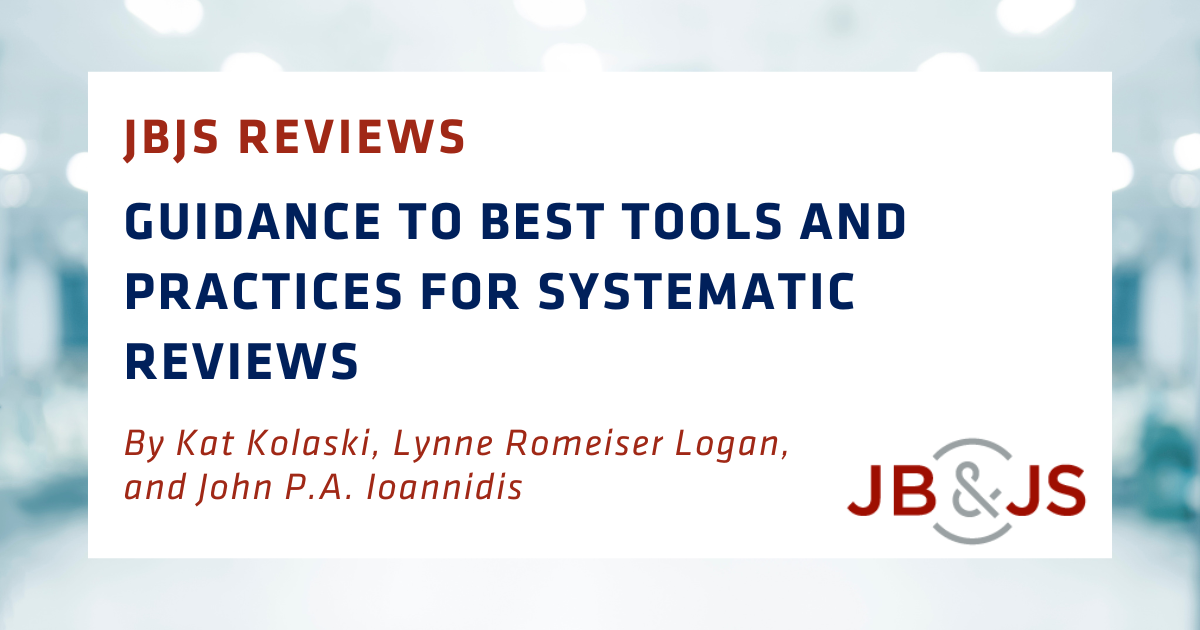A new article in JBJS Reviews offers guidance on best tools and practices for systematic reviews. The article was simultaneously published in Acta Anaesthesiologica Scandinavica,
Category: Need to Know

A video summary is available with the new study by Birkenes et al. in JBJS: The Long-Term Risk of Knee Arthroplasty in Patients with Arthroscopically

JBJS is pleased to announce that it has joined the International Orthopaedic Diversity Alliance (IODA) as a Charter Signatory. As described by the organization, IODA

Recent reports in JBJS Case Connector describe 2 orthopaedic cases involving the formation of “rice bodies,” fibrinous loose bodies with a rice-like appearance. As discussed

JBJS Journal of Orthopaedics for Physician Assistants (JOPA) continues the tradition of recognizing outstanding papers. Awards are given for the best articles submitted during the previous calendar

